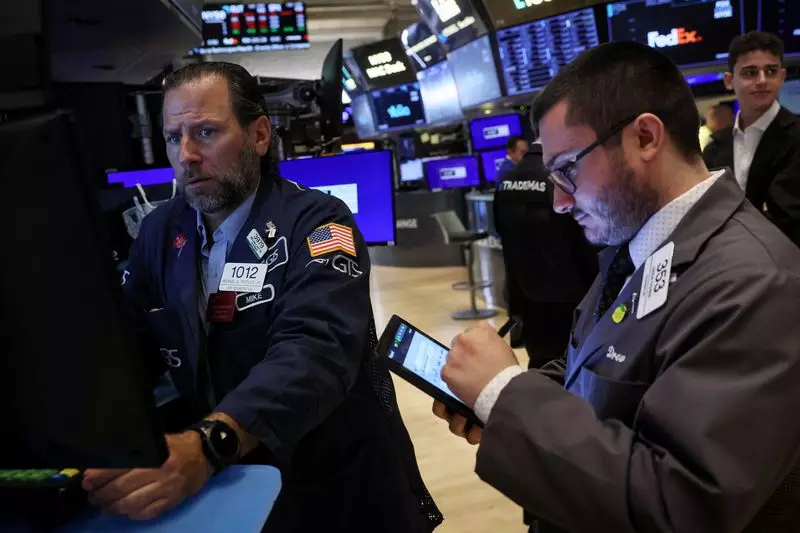The Nasdaq and the S&P 500 reached record highs as an in-line inflation report was released, giving hope for potential interest rate cuts in September. The report indicated that U.S. monthly inflation remained unchanged in May, which was seen as a positive sign following earlier price increases that cast doubt on the Federal Reserve’s monetary policy. This news was well-received by investors, as it fueled optimism that the central bank could successfully navigate a “soft landing” for the economy.
Following the release of the inflation data, bets on a rate cut in September increased to about 66%, according to LSEG FedWatch data. The prospect of cooling inflation and a possible interest rate cut provided a boost to risk assets, particularly equity markets. Investors anticipated a sustained downtrend in inflation, despite the Fed’s projections of only one rate cut this year, as the economy continued to face challenges due to high-interest rates.
In the stock market, the S&P 500 information technology index emerged as the top gainer among sectors, while utilities experienced a 1% decline. Notable tech stocks like Nvidia, Marvell Technology, Qualcomm, Applied Materials, and Intel all saw gains, contributing to the positive performance of the Philadelphia SE Semiconductor index, which reached a one-week high. However, some major companies, including Meta Platforms, Alphabet, and Amazon.com, saw their stock prices fall as Treasury yields rose slightly.
Nike, a leading sportswear brand, faced a significant setback with an 18.9% drop in its stock price after projecting a surprising decline in revenue for fiscal year 2025. This downturn weighed on the broader consumer discretionary sector, highlighting the vulnerability of companies to shifts in consumer spending patterns.
Despite the challenges faced by individual companies, the broader market seemed poised for gains, with both the S&P 500 and the Nasdaq expected to close the week on a positive note. The Russell benchmark indexes were also being reconstituted, adding to the overall optimism among investors. While the tech-heavy indexes showed quarterly gains, the Dow Jones Industrial Average was set to finish the quarter down 1%, showcasing the differing performances within the market.
Amidst the market movements, there were notable fluctuations in individual stocks, with optical networking gear maker Infinera experiencing an 18.3% jump following news of Nokia’s acquisition deal worth $2.3 billion. This highlighted the impact of strategic business decisions on stock prices and investor sentiment. Overall, the market showed a positive trend with advancing issues outnumbering decliners, underscoring the overall confidence among investors.
The interplay between inflation, interest rate expectations, and consumer spending has a significant impact on stock market performance. While positive inflation data can boost investor confidence and drive market gains, unexpected forecasts from major companies can trigger substantial declines, underscoring the volatility of the market. It is essential for investors to closely monitor economic indicators and corporate announcements to make informed decisions and navigate the complexities of the financial markets.

